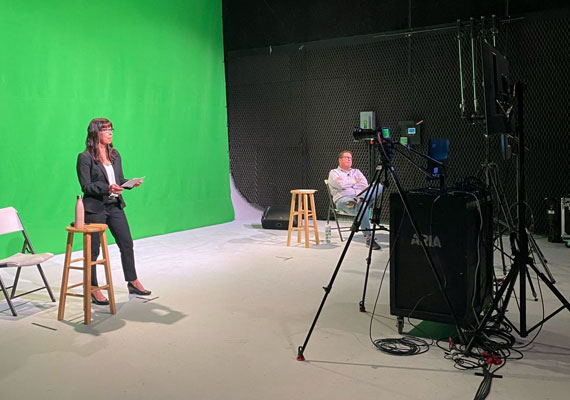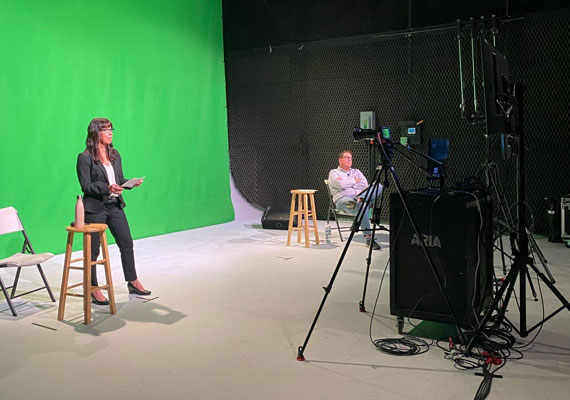AvaSure Virtual Symposium Recap – Day 2, September 24
Nurse Leadership
September 25, 2020

On September 24, AvaSure held the second day of its virtual National Symposium. Health care experts from across the United States gathered again to network and learn from each other on their experiences with continuous remote safety monitoring. The symposium topics on day two were mindful of this year’s theme, Leading Through Change, and made way for caregivers to collaborate and present best practices when utilizing the telehealth platform and providing the best care for their patients.
Panel 4 – Lessons Learned Monitoring the Monitors
The first panel of the day, Lessons Learned Monitoring the Monitors, brought together the AvaSure TeleSitter program managers from Covenant Health, Ascension St. Joseph Hospital, VA North Texas Health Care System and Oregon Health & Science University. The discussion was moderated by Wendy Popma-Breen, RN, BS, BSN AvaSure Clinical Program Specialist.
The TeleSitter program managers shared insights on best practices, tips for enculturation, utilization of the technology and more. Experts provided meaningful advice as learned from hands-on experience in leading monitoring staff teams, including insight on a wide range of use cases such as with patients who have COVID-19, are suicidal or at-risk of falling. Additionally, extensive insight was provided as it pertains to the staff who are in charge of monitoring the patients, such as ensuring they are appropriately trained, collaborate in teams with helpful feedback and take ample breaks so they are in a good headspace.
We learned that not only do these hospital systems utilize AvaSure’s technology for day-to-day monitoring of patients that qualify for inpatient TeleSitters, they spend time as teams to review the ORNA data the platform provides. By reviewing the data, the networks are able to accurately make decisions when expanding the application of continuous remote safety monitoring, how its use saves the hospital systems on operational costs, output the value with specified metrics, and more.
Panel 5 – Preventing Self-Harm, Remotely
The second panel of the day was moderated by AvaSure’s Vice President of Clinical Quality & Innovation Lisbeth Votruba, MSN, RN. The topic was Preventing Self-Harm, Remotely. Participants included hospital staff from, The University of Kansas Health System, Spectrum Health and Helen DeVos Children’s Hospital.
A Q&A discussion prompted the experts on how using the TeleSitter keeps patients with suicide ideation and other behavioral health patients safe from self-harm via the ability to remotely monitor them 24/7. All care networks that utilize continuous remote safey monitoring to supervise patients who could harm themselves are handled on a case-by-case basis. For example, an inpatient that is a low to moderate risk of self-harm might be a great fit for a TeleSitter, while high risk patients would be better suited for a 1:1 sitter that is always present in the hospital room. AvaSure consistently works alongside its customers to train monitoring staff and management departments to appropriately prepare the caregivers to make these decisions.
Panel representatives also discussed the topic of suicide from a general perspective, reiterating the need to continue normalizing discussions surrounding behavioral health. It’s important to understand the stigmas surrounding suicide so health care organizations and their providers can continue to educate and improve the notions of silence.
The discussion wrapped with timely comments regarding the recent Centers for Disease Control and Prevention (CDC)-issued warning and predictions on the potential increase on the horizon for behavioral health issues, considering the difficult year 2020 has been. The hospital representatives expressed they are starting to see suicidal patients increase, especially in younger adults who are autistic.
Panel 6 – Making Sure the Kids are All Right
A new panel at this year’s symposium was Making Sure the Kids are All Right, which was moderated by Stacey Overholt, MBA, BSN, RN, AvaSure Clinical Director. Panel experts included staff from Anne Arundel Hospital and Methodist Children’s Hospital San Antonio. The participants outlined the benefits and challenges of utilizing continuous remote safety monitoring for those in pediatric care.
Anne Arundel Hospital staff stated they have utilized AvaSure’s TeleSitter platform for more than 8,400 monitoring hours over the past year just in the pediatric department location, which also resulted in an operational cost savings of $200,000 in that sector alone for that time period. Not only does the hospital network see the cost reduction benefit, but they said it allows them to better care for their young patients who are struggling with behavioral health while undergoing inpatient care.
A specific topic that was discussed extensively during the session was the importance of communication between the care staff who are utilizing remote monitoring methods in a pediatric hospital room with the patient’s parent or guardian. We learned that communicating from the beginning on why the patient is being monitored, the fact that the cameras aren’t recording the room and the benefits it provides greatly increased the parent’s comfort when having their dependent in the hospital’s care.
Following the conclusion of the second day panels, AvaSure was incredibly excited to honor the 2020 AvaPrize recipients:
- Hub & Spoke Award – WakeMed Health & Hospitals
- Path-to-Zero Award – The Miriam Hospital
- Safety Net Award – Riverside University Health System Medical Center
- Superstar Monitor Staff Member – Megan Fitzsimmons, Oregon Health & Science University Hospital
Keynote – Dr. Kelly Posner Gerstenhaber
The symposium ended on an extremely honorable note. Dr. Kelly Posner presented the final keynote presentation. Dr. Posner is the Professor of Psychiatry at Columbia University and world-renowned expert on the risk of suicide among patients. She spoke about her work in developing the Colombia Protocol, and the importance of shining a light on suicide as a worldwide public health crisis.
The Columbia Protocol, also known as the Columbia-Suicide Severity Rating Scale (C-SSRS), supports suicide risk assessment through a series of simple, plain-language questions that anyone can ask. The answers help users identify whether someone is at risk for suicide, assess the severity and immediacy of that risk, and gauge the level of support that the person needs. In 2011, the CDC adopted the protocol’s definitions for suicidal behavior and recommended the use of the Columbia Protocol for data collection. In 2012, the Food and Drug Administration declared the Columbia Protocol the standard for measuring suicidal ideation and behavior in clinical trials. Today, the Columbia Protocol is used in clinical trials, public settings, and everyday situations, such as in schools, faith communities, hospitals, and the military, to identify who needs help – saving lives in 45 nations on six continents.
Dr. Posner expressed this protocol works because people care and want to engage. Engagement and asking the right questions can quite literally be medicine for someone who is contemplating self-harm or suicide. Suicide is a shared problem of humanity, but it’s the one preventable cause of death. Everyone across the world has in some way been affected by suicide and when you break down barriers by asking tough questions and paying attention, you save lives.
AvaSure is so appreciative of those who made our third National Symposium on Leading Through Change a success. In case you missed any of the presentations and would like to learn more, a recording of the symposium sessions will be available after the event.
We also encourage you to check out the other resources on our website and social media channels. You can find us on Twitter @AvaPrize and on our Symposium Facebook page www.facebook.com/groups/avasurecommunity.
Ready to get started?
Get in touch with an AvaSure representative to learn more about AvaSure's AI-enabled virtual care solutions.
